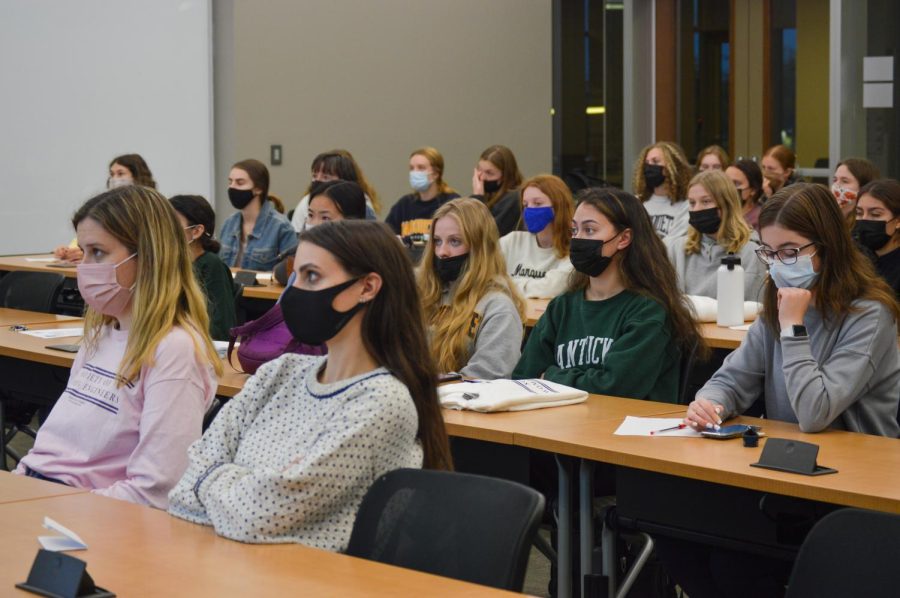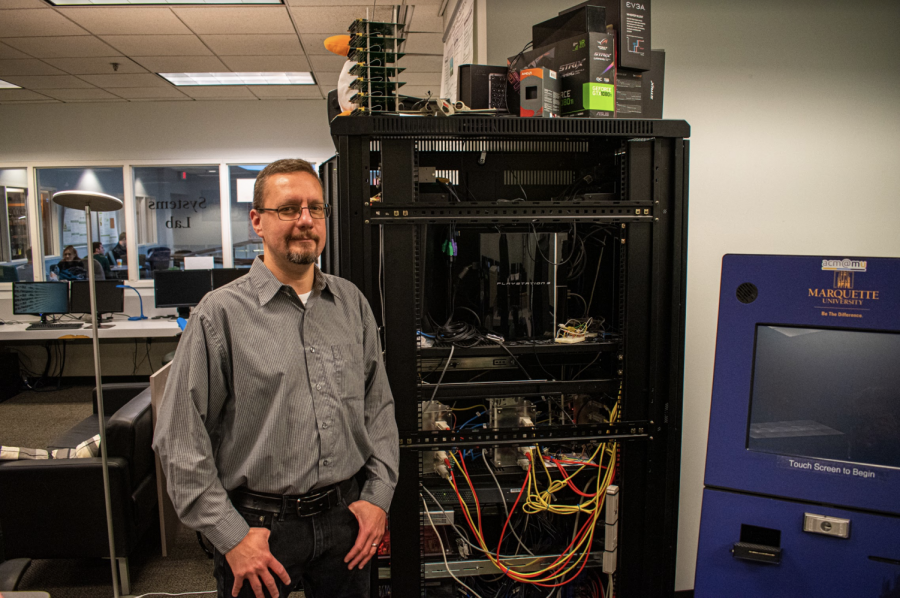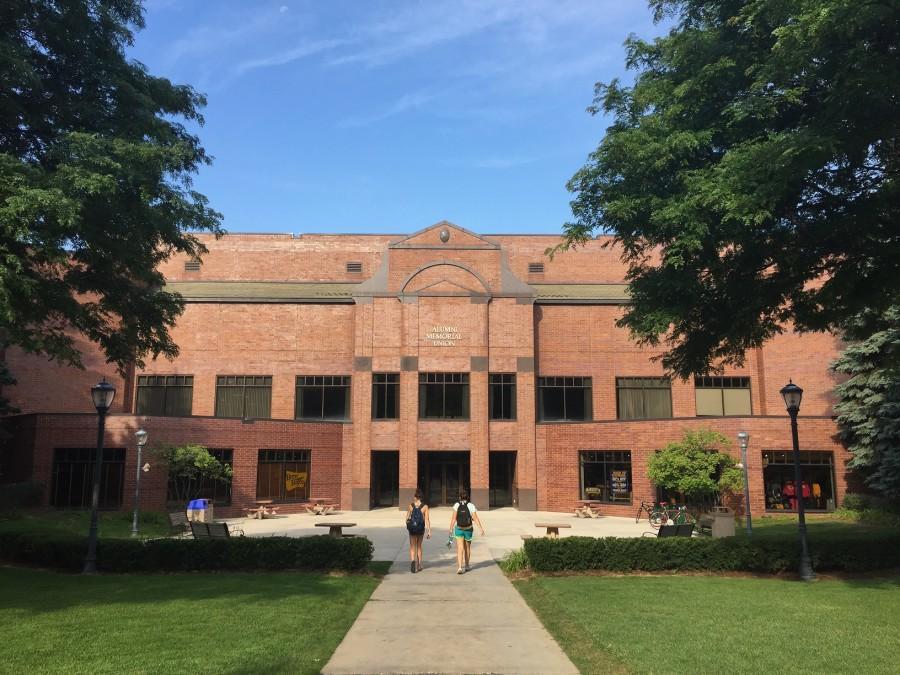Marquette has created two new specializations this year for graduate students studying computer programs as well as a program that allows students to achieve their undergraduate and Master’s degrees in five years.
The new specializations are called “Information Assurance and Cyber Defense”, and “Big Data and Data Analysis”. Information Assurance and Cyber Defense focuses on security concerns within databases, networks and systems. Big Data and Data Analytics focuses on business applications and provides future computing professionals with the knowledge to define processes and systems that will enhance the performance of their organizations using data.
“There has been a lot of talk in the industry about the need for people in those two particular areas,” said Thomas Kaczmarek, director of the Master of Science in Computing program. “Now we have them.”
Kaczmarek said the program became aware there was no Information Insurance and Cyber Defense programs through a contact who is a representative with the Department of Homeland Security, which is responsible for infrastructure security in Wisconsin. He said that after talking with him, they became aware that there was no recognized program in that area in the state of Wisconsin. Wisconsin is one of six states that does not have Information Insurance and Cyber Defense programs.
“We looked at the curriculum and had most of the elements to do it,” Kaczmarek said. “We just made a few adjustments and established the specialization.”
Kazcmarek said that they somewhat simultaneously decided they need to have a specialization in the Big Data program as well.
“We had developed a number of courses that were aimed at using big data, data analysis as used in business,” Kazcmarek said. “So we put those courses into our curriculum and decided we should probably have a specialization in that area as well.”
Kaczmarek said he received a lot of interest, especially from incoming students, about these two programs.
Gary Krenz, a professor in the Department of Mathematics, Statistics and Computer Science, said people wanted these specializations. He said it would make it easier for students looking at Marquette to see what programs they have.
“It will attract more students,” Krenz said. “Students would always be like do you have this? And I would say we do, but we don’t call it that. But now we do have it. These specializations give what we have a voice.”
Krenz said that the interest for these specializations came from a wide variety of people.
“Tremendous interest in these specializations from not just students, but companies as well,” Krenz said. “Not just nationwide, but especially in the state.”
Krenz added that although the specializations will require making changes, he believes they will only strengthen both the graduate and undergraduate programs.
“It will make us put a sharper focus on certain courses,” Krenz said. “Update and change them to whatever improves them.”
David Kliemann, an instructor in the mathematics, statistics, and computer science department, said that both specializations, especially cyber security, are growing and need more people with an increased skill level to protect critical infrastructures.
“It is definitely needed across every industry,” Kliemann said. “There is never going to be a magic app or tool that is un-hackable. It is always going to be needed, and you see that whenever you go on any job search board. DICE, LinkedIn, others. They all have jobs for information security at all levels.”
Kiliemann said that having these two specializations is great for Marquette and will help the university stand out while providing excellent education for students.
“They’re both key roles that society needs to fill,” Kiliemann said.
In addition to specializations, a new program that would allow students to get their undergraduate and Masters’ degrees in five years was introduced for the graduate computer program.
Kaczmarek said that this initiative would allow students to take 12 credits of 4000 level courses that would also count as 5000 level graduate courses. He said this would mean the students who want to do this program would do extra work in these courses compared to somebody who is an undergraduate.
A Master’s degree is 36 credits, 18 for the specialization, and 18 for electives. This program would allow students to finish in one year instead of two.
Krenz is a professor for some of these courses and said not only is more work expected of his graduate students, but a harder grading scale is added.
“But most don’t bat an eye,” Krenz said. “They understand the extra work it takes for a Master’s degree.”







